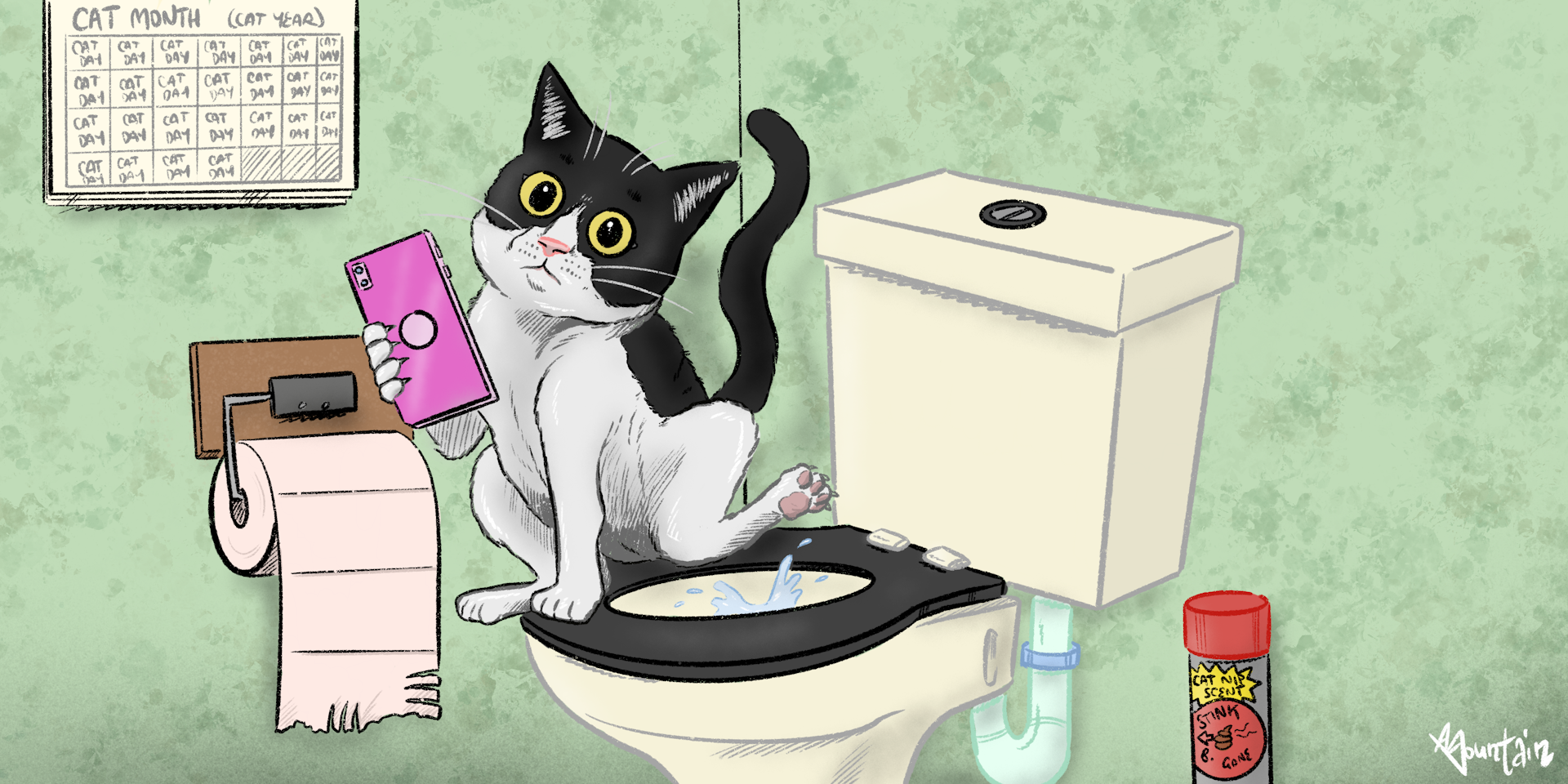Avoid Clogs and Damage: Don't Flush Cat Poop Down Your Toilet - Expert Insights
Avoid Clogs and Damage: Don't Flush Cat Poop Down Your Toilet - Expert Insights
Blog Article
How do you feel in regards to Can You Flush Cat Poo or Litter Down the Toilet??

Intro
As pet cat proprietors, it's essential to be mindful of how we get rid of our feline good friends' waste. While it might appear hassle-free to purge feline poop down the bathroom, this method can have detrimental effects for both the environment and human wellness.
Environmental Impact
Purging pet cat poop introduces unsafe microorganisms and bloodsuckers into the supply of water, posturing a significant danger to marine communities. These pollutants can adversely influence marine life and compromise water high quality.
Wellness Risks
Along with ecological concerns, flushing cat waste can likewise present health and wellness threats to human beings. Pet cat feces might have Toxoplasma gondii, a bloodsucker that can create toxoplasmosis-- a possibly serious ailment, particularly for expecting ladies and individuals with weakened immune systems.
Alternatives to Flushing
The good news is, there are safer and more responsible means to take care of pet cat poop. Think about the complying with alternatives:
1. Scoop and Dispose in Trash
One of the most typical method of disposing of pet cat poop is to scoop it into a biodegradable bag and toss it in the trash. Make sure to use a committed trash inside story and get rid of the waste promptly.
2. Use Biodegradable Litter
Go with naturally degradable pet cat litter made from materials such as corn or wheat. These clutters are environmentally friendly and can be safely disposed of in the trash.
3. Hide in the Yard
If you have a backyard, consider burying feline waste in a marked location away from vegetable gardens and water sources. Make sure to dig deep adequate to stop contamination of groundwater.
4. Install a Pet Waste Disposal System
Invest in a pet waste disposal system particularly developed for feline waste. These systems utilize enzymes to break down the waste, minimizing odor and environmental impact.
Conclusion
Responsible pet possession expands past supplying food and shelter-- it also involves correct waste monitoring. By refraining from flushing pet cat poop down the bathroom and choosing alternative disposal approaches, we can lessen our environmental impact and secure human health.
Why You Should Never Flush Cat Poop Down the Toilet
A rose by any other name might smell as sweet, but not all poop is created equal. Toilets, and our sewage systems, are designed for human excrement, not animal waste. It might seem like it couldn’t hurt to toss cat feces into the loo, but it’s not a good idea to flush cat poop in the toilet.
First and foremost, assuming your cat uses a litter box, any waste is going to have litter on it. And even the smallest amount of litter can wreak havoc on plumbing.
Over time, small amounts build up, filling up your septic system. Most litter sold today is clumping; it is made from a type of clay that hardens when it gets wet. Ever tried to scrape old clumps from the bottom of a litter box? You know just how cement-hard it can get!
Now imagine just a small clump of that stuck in your pipes. A simple de-clogger like Drano isn’t going to cut it. And that means it’s going to cost you big time to fix it.
Parasitic Contamination
Believe it or not, your healthy kitty may be harboring a nasty parasite. Only cats excrete Toxoplasma in their feces. Yet it rarely causes serious health issues in the cats that are infected. Most people will be fine too if infected. Only pregnant women and people with compromised immune systems are at risk. (If you’ve ever heard how women who are expecting are excused from litter cleaning duty, Toxoplasma is why.)
But other animals may have a problem if infected with the parasite. And human water treatment systems aren’t designed to handle it. As a result, the systems don’t remove the parasite before discharging wastewater into local waterways. Fish, shellfish, and other marine life — otters in particular — are susceptible to toxoplasma. If exposed, most will end up with brain damage and many will die.
Depending on the species of fish, they may end up on someone’s fish hook and, ultimately on someone’s dinner plate. If that someone has a chronic illness, they’re at risk.
Skip the Toilet Training
We know there are folks out there who like to toilet train their cats. And we give them props, it takes a lot of work. But thanks to the toxoplasma, it’s not a good idea.
Do you really like reading up on How to Dispose of Cat Poop and Litter Without Plastic Bags? Put feedback down below. We'd be delighted to know your reactions about this article. In hopes that you come back again before long. So long as you enjoyed reading our article if you please be sure to pass it around. We appreciate reading our article about How to Dispose of Cat Poop and Litter Without Plastic Bags.
Book Your Service Report this page